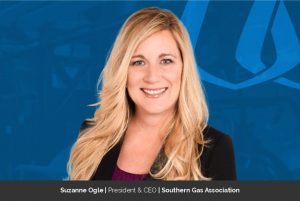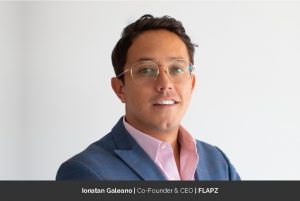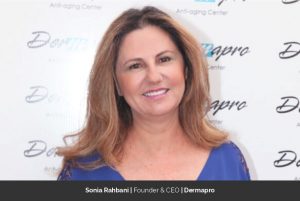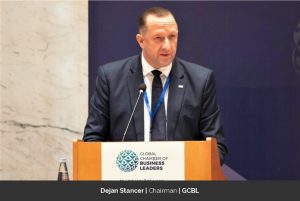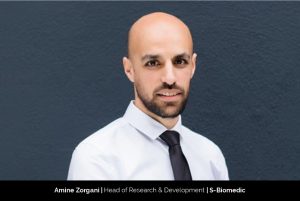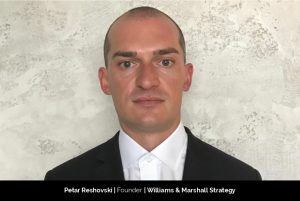Sam Perry: Promoting a Collaborative and Value-Based Mindset towards Patient Care and Business Operations
The 10 Most Innovative Business Leaders to Follow in 2022
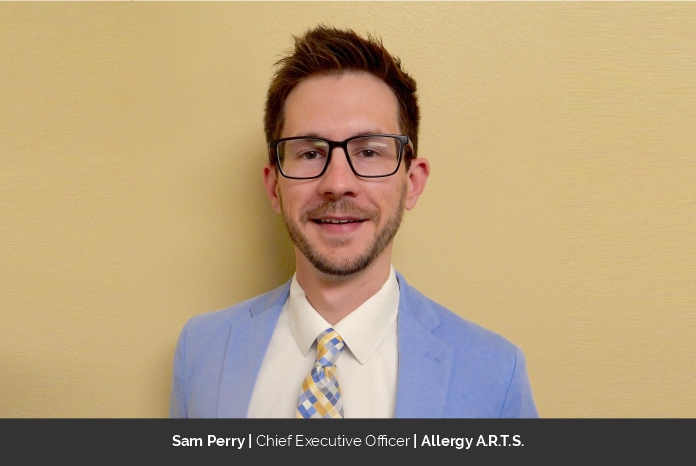
Rheumatology
is one of the most in-demand medical specialties. The pace of retirement is
surpassing that of those entering the field due to a top-heavy provider base.
While it is a sound financial decision, it lacks the Hollywood glamour of a
surgical career as well as the national drive for primary care practitioners.
All are necessary, but our ageing population needs excellent specialist care doctors
that work in tandem with patients’ primary care providers to deliver
high-quality care and preventative measures.
Sam
Perry, CEO
of Allergy A.R.T.S., is developing and leading transformative growth by
promoting a collaborative and value-based mindset towards patient care and
business operations. He is a young visionary with a challenged but proven
record of accomplishment in healthcare leadership and service line addition. He
is encouraging organizational cohesion to develop, achieve, and maintain a
system vision. Sam’s abilities were honed via industry breakthroughs,
multimillion-dollar capital projects, contract negotiations, trial and error,
and unrivalled organizational growth.
Sam was
drawn to healthcare because it tends to attract people who are upbeat and kind,
and who thrive in a collaborative setting. What keeps him going is the variety
of jobs and the potential to serve the community. Sam began his career path in medicine
and then went to law, before settling on business and, especially, healthcare
administration. He, like many other eager-eyed college freshmen, was indecisive
about his future professional path: pharmacist, physician, or lawyer.
Growing up,
his parents always advocated for a strong business background, and although
there wasn’t a single direction he was headed, there was the singular theme of
healthcare. After taking an elective in Healthcare Administration, Sam was
introduced to a world of business management that ticked all his boxes. He
says, “It was then that I was fortunate enough to meet two strong
industry leaders who I am fortunate enough to say would become some of my
mentors, Dr. Tracy Farnsworth and the late Dr. Patrick Hermanson.”
Both of these individuals showed Sam what healthcare administration could be,
sharing with him the experiences of their careers and where they thought the
industry would be heading. This excited Sam and has continued to push him
towards self-improvement and innovation within healthcare.
A
Multi-Specialty Medical Clinic
The only
way for a company to stay viable in the modern market is to innovate, adapt,
and innovate once more. Healthcare is still and will remain a service industry
at heart. “As healthcare becomes increasingly present in your home and
everyday life through wearables, virtual care, and personalized medicine, our
industry needs to recognize the importance of having good personal
relationships with our customer patients, our current and future staff, and our
communities,” says Sam.
Allergy,
Asthma, Immunology, and Rheumatology are all treated at A.R.T.S., a
multi-specialty medical facility. It can do a significant amount of diagnostic
and therapeutic work for patients since it has a comprehensive variety of
diagnostic services on-site, including x-ray, bone density, ultrasound, lab
work, pulmonary function tests, and state-of-the-art plethysmography. Since
2000, the clinic has housed over 200 FDA research trials, making it a clinical
research center.
Sam states,
“While growth is certainly on the list of plans, higher on the list is
our turning the focus inward to capitalize on and highlight what we are doing
well and improve upon areas in which we may be stagnant or behind the
curve.”
Changing
Equations of Success
Prior to
the pandemic, Sam, like many others in his industry, assessed performance by
using objective facts, statistics, and figures to achieve financial success.
While critical, healthcare has recently had to adjust to an arduous roller
coaster of legislative changes, personnel restrictions, supply chain delays,
and a sagging public image that is prioritizing relational success above
financial success. Every manager who has ever conducted a workplace survey
would agree that one of the top five complaints raised by employees is
“poor communication.” Instead, Sam sees this as a problem with the
company’s culture and a misunderstanding of how those employees want to
interact with management. Furthermore, there is the relational success that
comes from timely and quality patient care practices that are associated with
highly personal work. He says, “Increased competition in the market and
falling reimbursements put relationship management front and center when
recruiting for and retaining both patients and staff.”
According
to Sam, the necessity for grey in life and decision-making has become apparent;
absolutes hinder his capacity to see the big picture. More flexibility in the
workforce, job completion, and corporate operations has resulted from the rise
of remote work. Albert Einstein is quoted as saying, “Strive not to be a
success, but rather be of value.” Sam states that if you or your employees
can prove to be of value, success will follow. He further adds that without the
pursuit of adding value, he usually sees short cuts being taken by those only
fixed on success, on the prize. “A good leader should not only inspire
those around them towards a common goal, but should also shed light on how they
intend to get them there by encouraging the best out of their employees as a
unit,” says Sam.
Initiatives
for Improvement
Sam’s prior
work includes an FAA-supported and state-funded pilot project in North Dakota
for an unmanned aerial vehicle network (worked with Vantis and the Northern
Plaints UAS Test Site). Educational partnerships and design genesis to promote
healthcare careers at an earlier stage in education. Through the design and
advocacy of a hospital-based aquaponics and hydroponic greenhouse, he promoted
alternative agriculture and food nutrition among adolescents. He also used
telemedicine, co-ops, and cost-sharing models to expand the reach and
accessibility of specialty health care services to rural and underprivileged
populations.
Sam
incorporates technology into repetitive healthcare chores so that health care
professionals may spend more time directly with patients, restoring humanity to
these encounters. Currently interested in the benefits that VR therapy can have
on pain management therapies and the reduction of healthcare associated anxiety
(e.x. White Coat Syndrome) Sam is still looking to push the industry forward.
Determined
towards the Work and Life
Sam enjoys
variety in his days, which is one of the reasons he stays in healthcare. He can
go from a financial conversation to picking up a mop to clean up a juice box
explosion in the clinic’s lobby in a matter of seconds. Sam has the opportunity
to walk the floors and engage with patients and staff, demonstrating the value
of a smile and a helpful hand. As he admits, he, too, is burdened by tough
decisions and the consequences of some of those actions. “It is one thing to
mandate a cultural change from on high, but it’s quite another to live the
culture you want to provide at your organization; teamwork and a willingness to
go above and beyond,” he says.
As Sam sees
it, a healthy work-life balance begins at home. He finds his wife to be highly
supportive of his profession and enjoys their outdoor outings together. He
feels that having a solid support system of friends and family allows him to
unplug and relax when he needs to.
Sam
motivates his staff at work by performing small acts of kindness and providing
continuous praise. He sees part of his role as being there for the staff so
they can be there for the patients.
Looking
towards Extending Knowledge
“Being
28 years old, my biggest challenge thus far has been proving myself and
overcoming the arbitrary number that is my age,” says Sam. He considers himself
fortunate and grateful to have been given leadership duties at such an age,
which is generally reserved for his parents’ generation. He observes that
workplace diversity is a hot topic at many recruiting tables, and that the
capacity to demonstrate one’s worth, regardless of age, race, or gender, is
important to any professional advancement.
As a
company leader, Sam intends to expand his knowledge base and network of
specialists with whom he can ask questions, bounce ideas off of, and share in any
industry issues. He says, “Being comfortable enough to know you don’t
know everything and instead surround yourself with knowledgeable,
nonjudgmental, and honest people will afford you personal and professional
growth like no other.” Sam looks forward to being a voice and
example of innovation in healthcare at all levels.





